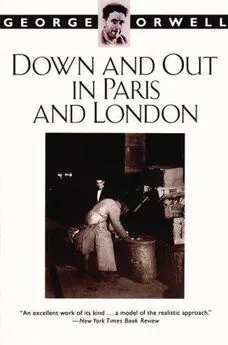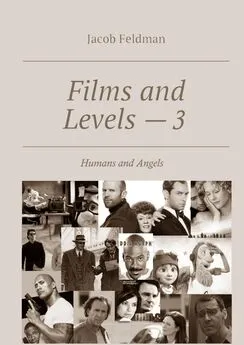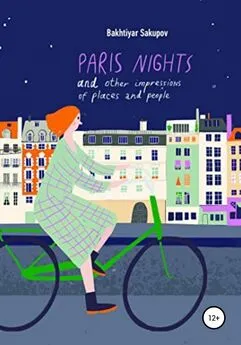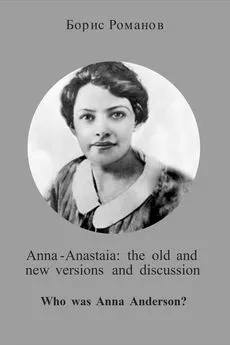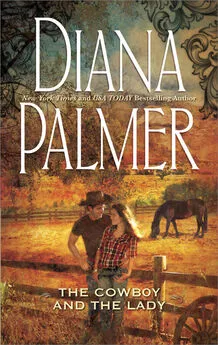George Orwell - Down and Out in Paris and London
- Название:Down and Out in Paris and London
- Автор:
- Жанр:
- Издательство:неизвестно
- Год:неизвестен
- ISBN:нет данных
- Рейтинг:
- Избранное:Добавить в избранное
-
Отзывы:
-
Ваша оценка:
George Orwell - Down and Out in Paris and London краткое содержание
Down and Out in Paris and London - читать онлайн бесплатно полную версию (весь текст целиком)
Интервал:
Закладка:
sickly, chap-fallen face yearned over the milk. Then he
turned away, saying gloomily:
"Best leave it. It don't do a man no good to steal.
Tank God, I ain't never stolen nothin' yet."
It was funk, bred of hunger, that kept him virtuous.
With only two or three sound meals in his belly, he would
have found courage to steal the milk.
He had two subjects of conversation, the shame and
come-down of being a tramp, and the best way of getting
a free meal. As we drifted through the streets he would
keep up a monologue in this style, in a whimpering, self-
pitying Irish voice:
"It's hell bein' on de road, eh? It breaks yer heart goin'
into dem bloody spikes. But what's a man to do else, eh?
I ain't had a good meat meal for about two months, an'
me boots is getting bad, an'-Christ! How'd it be if we was
to try for a cup o' tay at one o' dem convents on de way
to Edbury? Most times dey're good for a cup o' tay. Ah,
what'd a man do widout religion, eh? I've took cups o' tay
from de convents, an' de Baptists, an' de Church of
England, an' all sorts. I'm a Catholic meself. Dat's to say,
I ain't been to confession for. about seventeen year, but
still I got me religious feelin's, y'understand. An' dem
convents is always good for a cup o' tay . . ." etc. etc. He
would keep this up all day, almost without stopping.
His ignorance was limitless and appalling. He once
asked me, for instance, whether Napoleon lived before
Jesus Christ or after. Another time, when I was looking
into a bookshop window, he grew very perturbed because
one of the books was called Of the
Imitation of Christ . He
took this for blasphemy. "What de hell do dey want to go
imitatin' of
Him for?" he demanded angrily. He could
read, but he had a kind of loathing for books. On our
way from Romton to Edbury I went into a public library,
and, though Paddy did not want to read, I suggested that
he should come in and rest his
legs. But he preferred to wait on the pavement. "No," he
said, "de sight of all dat bloody print makes me sick."
Like most tramps, he was passionately mean about
matches. He had a box of matches when I met him, but I
never saw him strike one, and he used to lecture me for
extravagance when I struck mine. His method was to
cadge a light from strangers, sometimes going without a
smoke for half an hour rather than strike a match.
Self-pity was the clue to his character. The thought of
his bad luck never seemed to leave him for an instant. He
would break long silences to exclaim, apropos of nothing,
"It's hell when yer clo'es begin to go up de spout, eh?" or
"Dat tay in de spike ain't tay, it's piss," as though there
was nothing else in the world to think about. And he had a
low, worm-like envy of anyone who was better off-not of
the rich, for they were beyond his social horizon, but of
men in work. He pined for work as an artist pines to be
famous. If he saw an old man working he would say
bitterly, "Look at dat old keepin' able-bodied men out o'
work"; or if it was a boy, "It's dem young devils what's
takin' de bread out of our mouths." And all foreigners to
him were "dem bloody dagoes"-for, according to his
theory, foreigners were responsible for unemployment.
He looked at women with a mixture of longing and
hatred. Young, pretty women were too much above him to
enter into his ideas, but his mouth watered at prostitutes.
A couple of scarlet-lipped old creatures would go past;
Paddy's face would flush pale pink, and he would turn and
stare hungrily after the women. "Tarts!" he would
murmur, like a boy at a sweetshop window. He told me
once that he had not had to do with a woman for two
years-since he had lost his job, that is-and he had
forgotten that one could aim higherthan prostitutes.
He had the regular character of a tramp-abject, envious,
a jackal's character.
Nevertheless, he was a good fellow, generous by nature
and capable of sharing his last crust with a friend;
indeed he did literally share his last crust with me
more than once. He was probably capable of work too, if
he had been well fed for a few months. But two years of
bread and margarine had lowered his standards hopelessly.
He had lived on this filthy imitation of food till his own
mind and body were compounded of inferior stuff. It was
malnutrition and not any native vice that had destroyed
his manhood.
XXIX
ON the way to Edbury I told Paddy that I had a friend
from whom I could be sure of getting money, and
suggested going straight into London rather than face
another night in the spike. But Paddy had not been in
Edbury spike recently, and, tramp-like, he would not
waste a night's free lodging. We arranged to go into
London the next morning. I had only a halfpenny, but
Paddy had two shillings, which would get us a bed each
and a few cups of tea.
The Edbury spike did not differ much from the one at
Romton. The worst feature was that all tobacco was
confiscated at the gate, and we were warned that any man
caught smoking would be turned out at once. Under the
Vagrancy Act tramps can be prosecuted for smoking in the
spike-in fact, they can be prosecuted for almost anything;
but the authorities generally save the trouble of a
prosecution by turning disobedient men out of doors.
There was no work to do, and the cells were fairly
comfortable. We slept two in a cell,
"one up, one down"-that is, one on a wooden shelf and
one on the floor, with straw palliasses and plenty of
blankets, dirty but not verminous. The food was the same
as at Romton, except that we had tea instead of cocoa.
One could get extra tea in the morning, as the Tramp
Major was selling it at a halfpenny a mug, illicitly no
doubt. We were each given a hunk of bread and cheese to
take away for our midday meal.
When we got into London we had eight hours to kill
before the lodging-houses opened. It is curious how one
does not notice things. I had been in London innumerable
times, and yet till that day I had never noticed one of the
worst things about London-the fact that it costs money
even to sit down. In Paris, if you had no money and could
not find a public bench, you would sit on the pavement.
Heaven knows what sitting on the pavement would lead to
in London-prison, probably. By four we had stood five
hours, and our feet seemed red-hot from the hardness of
the stones. We were hungry, having eaten our ration as
soon as we left the spike, and I was out of tobacco-it
mattered less to Paddy, who picked up cigarette ends. We
tried two churches and found them locked. Then we tried a
public library, but there were no seats in it.-As a last hope
Paddy suggested trying a Romton House; by the rules they
would not let us in before seven, but we might slip in
unnoticed. We walked up to the magnificent doorway (the
Rowton Houses really are magnificent) and very casually,
trying to look like regular lodgers, began to stroll in.
Instantly a man lounging in the doorway, a sharp-faced
fellow, evidently in some position of authority, barred the
way.
"You men sleep 'ere last night?"
"No."
"Then-off."
We obeyed, and stood two more hours on the street
corner. It was unpleasant, but it taught me not to use the
expression "street corner loafer," so I gained something
from it.
At six we went to a Salvation Army shelter. We could
not book beds till eight and it was not certain that there
would be any vacant, but an official, who called us
"Brother," let us in on the condition that we paid for two
cups of tea. The main hall of the shelter was a great white-
washed barn of a place, oppressively clean and bare, with
no fires. Two hundred decentish, rather subdued-looking
people were sitting packed on long wooden benches. One
or two officers in uniform prowled up and down. On the
wall were pictures of General Booth, and notices
prohibiting cooking, drinking, spitting, swearing,
quarrelling and gambling. As a specimen of these notices,
here is one that I copied word for word:
"Any man found gambling or playing cards will be
expelled and will not be admitted under any
circumstances.
"A reward will be given for information leading to
the discovery of such persons.
"The officers in charge appeal to all lodgers to
assist them in keeping this hostel free from the
DETESTABLE EVIL OF GAMBLING."
"Gambling or playing cards" is a delightful phrase.
To my eye these Salvation Army shelters, though clean,
are far drearier than the worst of the common lodging-
houses. There is such a hopelessness about some of the
people there-decent, broken-down types who have pawned
their collars but are still trying for office jobs.
Coming to a Salvation Army shelter, where it is
at least clean, is their last clutch at respectability. At the
next table to me were two foreigners, dressed in rags
but manifestly gentlemen. They were playing chess
verbally, not even writing down the moves. One of them
was blind, and I heard them say that they had been
saving up for a long time to buy a board, price half a
crown, but could never manage it. Here and there were
clerks out of work, pallid and moody. Among a group of
them a tall, thin, deadly pale young man was talking
excitedly. He thumped his fist on the table and boasted
in a strange, feverish style. When the officers were out
of hearing he broke out into startling blasphemies
"I tell you what, boys, I'm going to get that job to-
morrow. I'm not one of your bloody down-on-the-knee
brigade; I can look after myself. Look at that notice there!
'The Lord will provide!' A bloody lot He's ever provided me
with. You don't catch me trusting to the
Lord. You
leave it to me, boys.
I'm going to get that job ," etc. etc.
I watched him, struck by the wild, agitated way in
which he talked; he seemed hysterical, or perhaps a little
drunk. An hour later I went into a small room, apart
from the main hall, which was intended for reading. It
had no books or papers in it, so few of the lodgers went
there. As I opened the door I saw the young clerk in there
all alone; he was on his knees, praying. Before I shut the
door again I had time to see his face, and it looked
agonised. Quite suddenly I realised, from the expression
of his face, that he was starving.
The charge for beds was eightpence. Paddy and I had
fivepence left, and we spent it at the "bar," where food
was cheap, though not so cheap as in some common
lodging-houses. The tea appeared to be made
with tea
dust , which I fancy had been given to the
Salvation Army in charity, though they sold it at three-
halfpence a cup. It was foul stuff. At ten o'clock an
officer marched round the hall blowing a whistle.
Immediately everyone stood up.
"What's this for?" I said to Paddy, astonished.
"Dat means you has to go off to bed. An' you has to
look sharp about it, too."
Obediently as sheep, the whole two hundred men
Читать дальшеИнтервал:
Закладка:
